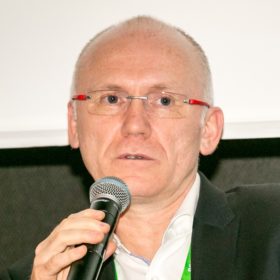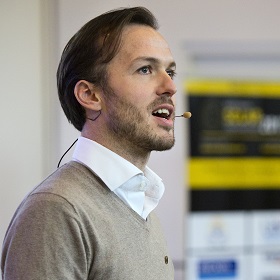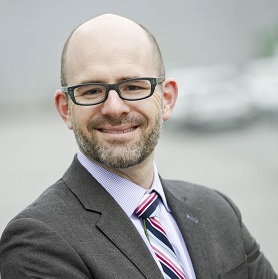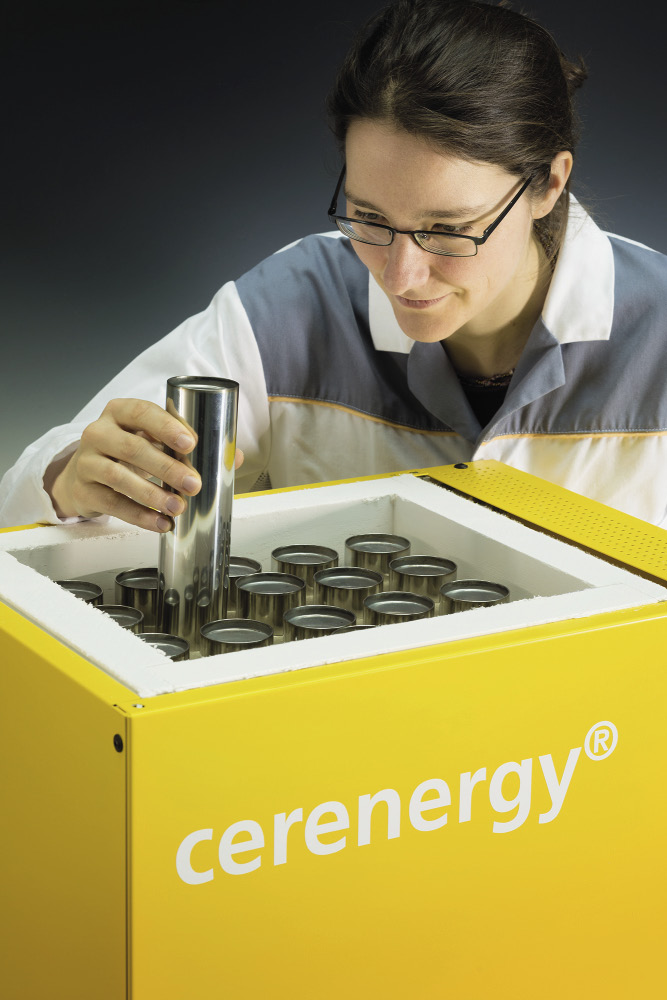Keep your eyes peeled, we are in the middle of our Storage Highlights Countdown, in the run-up to Energy Storage Europe Düsseldorf – on March 12-14. Messe Düsseldorf has partnered with pv magazine to produce a special publication for the event. As part of the project, we tasked an independent jury of experts to rank a range of new Energy Storage Highlights that will be exhibited at the event.
The full ranking will appear in the Energy storage special issue. We have already presented a self-sufficient multi-family house in Switzerland and DNV GL’s approach to a battery performance scorecard. Yesterday we saw a case study involving supercapacitors on an island and the next in line is…
#7
Fraunhofer IKTS
Ceramic high temperature battery works with liquid salt and sodium
Would you put a battery in your basement that operates at temperatures of 300 degrees Celsius and contains molten metal? The Fraunhofer Institute for ceramic technology and systems (IKTS) has proposed just that. According to the Fraunhofer team, the technology would be significantly cheaper and more environmentally friendly than conventional lithium-ion battery systems.
The newly developed ceramic high temperature ‘cerenergy’ battery for stationary storage is based on a technology which made its name as the ‘Zebra’ battery in the 1970s. A ceramic pipe, which works as the solid electrolyte, contains molten salt of sodium chloride and nickel chloride, working as the cathode. With voltage applied, the ceramic electrolyte allows sodium-ions to pass. These accumulate in the outer layers of the molten sodium, which works as the anode.
All of the materials used are cheap and readily available, according to Matthias Schulz, group manager at the Fraunhofer research group for stationary storage. As a result, the price for cells when produced at scale is forecast to be below €100/kWh. More work on the technology could see its efficiency boosted 95%.
Vacuum insulation is essential for the battery type. The transport of sodium-ions through the electrolyte only starts at temperatures above 200 degrees Celsius and good performance begins at temperatures of 270-300 degrees Celsius, the constant operating temperature for the system. Thanks to the insulation, the battery cells retain temperature evenly. Minute losses to the ambient temperature can be offset through process heat, said Schulz.
The battery has a built-in heating system designed for use when it starts operation, or if it has been idle for a long period. Since the battery does not discharge electrochemically, occasional use of the heating system can be considered a thermal self-discharge. An additional heat management system for the battery is not required, according to the team developing it.
The high-temperature battery cells feature an energy content of 130 watt-hours/kg, but a comparatively slow charge and discharge rate of 0.5C, which is why the battery is unsuitable for electric mobility, despite that being the original intent.
System costs of below €500 for the battery system allow their application at scale – particularly to store renewable energy. When doing so, fast charging is usually not required, according to Schulz. Further possibilities include peak shaving, continuity of feed-in supply or back-up power, as such batteries have a fast reaction time.
The IKTS is building its first project with a 100 kWh high temperature battery system in Thuringia, Germany. The institute has already developed a manufacturing process and the only remaining hurdle, said Schulz, is an investor.
Jury comments
Xavier Daval: “Potentially a low-cost alternative based on a basic material.”
Fraunhofer IKTS can be found at Energy Storage Europe 2019 at the joint booth for the Fraunhofer Alliance Energy, in Hall 8B, booth H33.
The jury

Xavier Daval
Daval is an international solar and storage expert as well as CEO of French solar technical advisory firm kiloWattsol SAS, which he founded in 2007. He is an electrical engineer and former director for the EMEA region for an NYSE-listed manufacturer of tools for the electronics industry. He is also VP of French renewable energy association Syndicat des Energies Renouvelables, chair of its solar commission and director of the Global Solar Council.

Logan Goldie-Scot
Goldie-Scot heads the energy storage insight team at BloombergNEF. He leads the company’s analysis on the global energy storage markets, providing insights on technology, markets, policies and regulation, as well as the competitive landscape. He also oversees the company’s analysis of supply chains.
 Rolf Heynen
Rolf Heynen
Heynen is director of Good! New Energy. Good! is known for the annual Dutch Solar Trend Report – also published in English – the Solar Quarterly, the Solar Solutions international trade fair and the Solar Business Day conference. Good! is also active in renewable heating, smart lighting and buildings, energy storage, consulting, energy modeling and market research. Heynen holds degrees in electrical engineering and political science.

Mark Higgins
Higgins is chief operating officer of Strategen, a professional services firm focused on market development for a decarbonized grid. His broad energy sector experience before Strategen included serving as director of utility west at SunEdison, VP of finance for Hu Honua Bioenergy, and as Pacific Gas & Electric’s lead in key policy areas including interconnection and transmission planning.

Julian Jansen
Jansen is a research manager at IHS Markit Technology. He leads the group’s global research on stationary energy storage and provides insight on the key value drivers and emerging business models accelerating storage deployment across Europe and North America. Jansen also delivers strategic advice for bespoke projects featuring new energy technologies.
 Florian Mayr
Florian Mayr
Mayr is a partner at Apricum and head of its energy storage, digital energy and green mobility practices. He is an expert in strategy, business development and transaction advisory in global renewable energy markets. Mayr advises cleantech companies on corporate and project financing. Before Apricum, he spent eight years in senior positions at McKinsey & Company and RWE.
This content is protected by copyright and may not be reused. If you want to cooperate with us and would like to reuse some of our content, please contact: editors@pv-magazine.com.



Could have a future in thermal storage for buildings. Water is cheap and easy, and can store cold as well as heat, but you need a large volume.